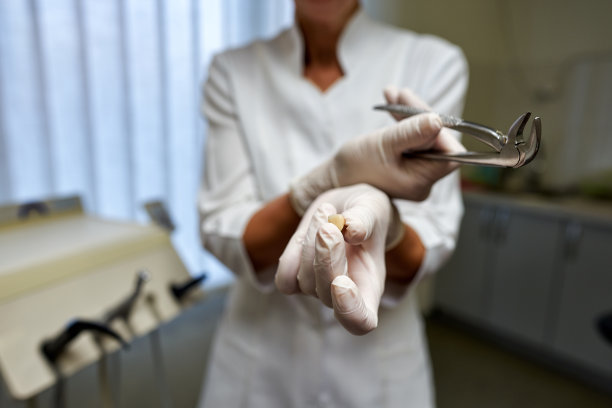Summary: Dental fillings are a common procedure designed to restore teeth affected by decay or damage. To ensure optimal oral health, its vital to understand the essential precautions that should be considered before and after receiving a dental filling. This article will outline four key areas of focus: understanding the procedure and its purpose, preparing for the dental visit, caring for your mouth post-filling, and maintaining long-term oral health. By following these guidelines, patients can enhance their dental experience and uphold their oral hygiene effectively.
1. Understanding the Procedure and Its Purpose

Before undergoing a dental filling procedure, its crucial to comprehend why the treatment is necessary. Dental fillings are primarily used to repair teeth damaged by decay or trauma. Understanding the need for a filling can help alleviate anxiety associated with dental visits, reassuring patients that this preventive measure is aimed at preserving their overall oral health.
Moreover, dental fillings vary in material and technique, including composite resin, amalgam, or ceramic. Each type has its pros and cons regarding durability, cost, and aesthetic appeal. Discussing these options with a dentist can ensure that the choice aligns with your preferences and needs.
Another factor to consider is the overall health of your teeth and gums before the procedure. Conditions such as gum disease or tooth sensitivity may need to be addressed prior to receiving a filling, which emphasizes the importance of thorough dental assessments before treatment.
2. Preparing for Your Dental Visit
Preparation for a dental filling involves not only physical readiness but also mental acumen. First, scheduling an appointment at a time when you feel least anxious can make a significant difference. Reviewing any questions or concerns ahead of your visit helps ensure you leave the appointment feeling informed and satisfied.
Its also advisable to alert your dentist about any medications or health concerns that could affect the filling process. Certain medications might lead to prolonged bleeding or adverse reactions to anesthesia, impacting the procedures outcomes.
Arriving with a clean mouth can help facilitate the filling process as well. Brushing and flossing before your visit will minimize bacteria and plaque, allowing for a more efficient and sterile environment for the dental work.
3. Caring for Your Mouth Post-Filling
After receiving a dental filling, proper aftercare is instrumental for optimal healing and longevity of the filling. Initially, it’s recommended to avoid eating for at least an hour to allow the anesthetic to wear off and to prevent biting your cheek or tongue.
Once you resume eating, stick to soft foods for the first few days while your mouth adjusts. Foods that require minimal chewing can reduce the risk of discomfort or damage to the filling. After a few days, you can gradually reintroduce your normal diet, but take care to avoid extremely hot or cold items.
Additionally, maintaining excellent oral hygiene is crucial after the filling procedure. Brushing twice a day and flossing regularly can help prevent cavities around the new filling, extending its lifespan and ensuring your overall dental health remains intact.
4. Maintaining Long-Term Oral Health
To ensure that fillings remain effective over time, its important to maintain regular dental check-ups. Visiting your dentist every six months allows for early detection of any issues, such as new cavities or wear on existing fillings, which can save you from more extensive procedures in the future.
In addition to professional care, lifestyle choices play a significant role in oral health. A balanced diet low in sugar and rich in calcium and vitamins can strengthen your teeth and gums. Staying hydrated also helps maintain saliva production, which is essential in combating decay.
Lastly, consider practicing good habits, such as avoiding tobacco use and limiting acidic beverages. These actions contribute to a healthier mouth and may increase the longevity of your dental fillings and overall dental work.
Summary:
By taking the time to understand the dental filling procedure and making the necessary preparations, patients can significantly enhance their experience and outcomes. Caring for your mouth post-filling and committing to long-term oral health practices are equally important. Together, these precautions pave the way for optimal dental health and hygiene.
This article is compiled by Vickong Dental and the content is for reference only.
Vickong Dental
Vickong Dental is a large medical group established in Hong Kong in 2008 by professors from well-known medical universities in Guangdong and Hong Kong, as well as medical doctors from key national '985' universities (including Master's supervisors and senior professors). The chain of branches brings together expert dentists with PhDs and Master's degrees from Hong Kong and Mainland China, committed to providing high-quality dental treatment.
"Vickong Dental Practices the University Motto of 'Healing and Serving Society,' with a Stable Operation for Sixteen Years. It Has Been honored with Hong Kong Enterprise Leaders's Choice,' and is a Global Trusted Implant Center for the Nobel Implant System. Recommended by Hong Kong Metro Broadcast and Guangdong Television, it Serves Customers from Over Thirty Countries and Regions, Gaining the Trust and Favor of Citizens from the Guangdong-Hong Kong-Macau Greater Bay Area and Surrounding Cities.

Thousands of customers' unanimous praise
The most recognized and highly recommended dental service by customers in the Guangdong-Hong Kong-Macau Greater Bay Area
We Ensure You Receive Detailed Care and Attention Here
Hong Kong standards, Shenzhen prices, Your Trusted English-speaking dentists

Vickong Dental Medical-Grade Instrument Disinfection Process
Vickong Dental Medical-Grade Instrument Disinfection Process

Vickong Dental Chain: A Warm and Comfortable Environment for Treatment






Appointment Hours

Q&A
Why choose Vickong Dental?
Vickong Dental practices the university motto 「Medicine to Benefit Society」, with each branch bringing together highly qualified dentists with doctoral and master’s degrees from Hong Kong and the Mainland, and has maintained seventeen years of steady operation。Recipient of 「2024 Hong Kong Enterprise Leaders Brand」, 「2025 Hong Kong Enterprise Leaders Brand」, a Nobel Biocare Global Trusted Implant Center, and a brand recommended by Metro Radio Hong Kong and Guangdong TV。
To date, we have served customers from more than thirty countries and regions,earning exceptionally high word-of-mouth recognition and trusted recommendations from residents across the Guangdong-Hong Kong-Macao Greater Bay Area and surrounding cities
We have eight major branches in Zhuhai、Shenzhen,and a consultation and service assurance center in Hong Kong,so you can book a free consultation at any time for any questions,which is very reassuring.
If I do not accept the quotation after the CT scan, will I be charged??
No! As long as the actual treatment has not started, you will not be charged any fees.
Will there be any additional charges during the treatment process?
No, there won’t be any additional charges. Before treatment begins, we will clearly explain the treatment plan and its corresponding fees. Only after the patient agrees and signs the consent form will we proceed with the dental service.
Can I pay in Hong Kong dollars?
Yes. Vickong Dental accepts payment in Hong Kong dollars. The amount will be converted based on the exchange rate of the day, and the applicable rate will be clearly communicated to you in advance.
Can I reschedule my appointment at any time?
Yes. Please contact us via **WeChat** or **WhatsApp** as early as possible, providing your original appointment time and details, along with your preferred new date and time slot for rescheduling.













